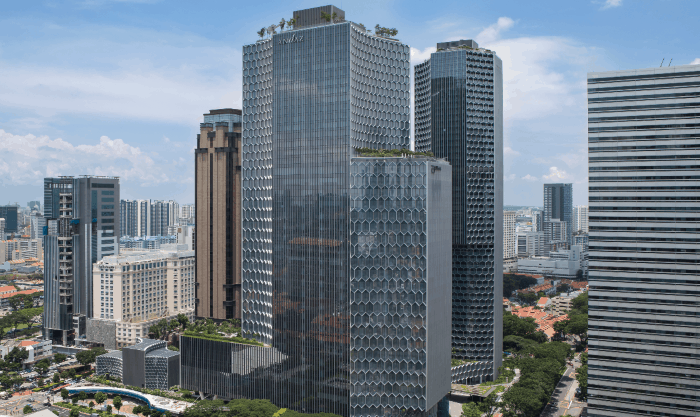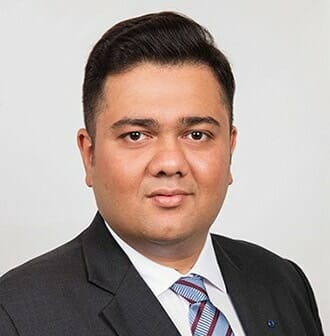
Allianz took a 60% stake in the DUO Tower and DUO Galleria last year
Allianz Real Estate grew its Asia Pacific portfolio by 83 percent last year, as the property investment arm of the European insurance giant ramped up its assets under management in the region to €5.5 billion ($6.1 billion).
“Our success in 2019 reinforces our conviction about the long-term growth potential of the Asia Pacific region,” Rushabh Desai, CEO for Asia Pacific at Allianz Real Estate said in a statement announcing the milestone.
The rapid growth in the region came as the real estate investment specialist’s global assets reached a record €73.6 billion in the same period – up 16 percent from 2018, according to an announcement by Allianz.
Marking a Pivotal Year with Mega-deals
2019 was a pivotal year for the insurer’s real estate team in Asia Pacific, according to Desai, who opened Allianz’ APAC base in Singapore in 2016.
The former General Electric executive highlighted organisational build-out and the team’s developing ability to originate and manage direct transactions as defining factors.
In 2017 Allianz made one of its early APAC picks, investing $100 million as a limited partner in ESR’s Japan Logistics Fund II, and during the same year it joined Keppel Land China and Alpha Investment Partners in their $525 million acquisition of Soho Hongkou in Shanghai.

Rushabh Desai, Allianz’ CEO Asia Pacific, said the firm is confident in Asia Pacific’s growth potential
More recently the company has been forming its own joint ventures or originating deals independently, including marking its entry into the Japanese market last October with the $1.1 billion purchase of a portfolio of multifamily assets from Blackstone.
The acquisition of 82 apartment buildings across major cities in Asia’s second largest economy was Allianz’ first direct multifamily acquisition in Asia.
Acquiring Joint Stakes in High Value Assets
Four months prior to the Japan deal, Allianz backed one of the largest Singapore acquisitions of 2019, partnering with Gaw Capital Partners to acquire the DUO Tower and DUO Galleria.
The insurer took a 60 percent stake in the S$1.5 billion purchase of the office building and mall, with the Hong Kong private equity firm taking the remaining 40 percent on behalf of an unnamed sovereign wealth fund.
In another joint acquisition in 2019, Allianz teamed up with funds managed by Alpha Investment Partners in October to purchase a commercial complex in Beijing from Warburg Pincus-backed developer D&J China for €1 billion. The joint venture took an 85 percent stake in the Ronsin Technology Center, with Allianz taking a 62 percent share in the JV.
Creating Depth Across Asset Classes
In addition to beefing up its office, retail and residential portfolios, the insurer stepped up its Asia Pacific logistics exposure during 2019.
In May, Alianz injected $600 million into China- and Japan-focused funds managed by warehouse developer and fund manager GLP, with the company at that time identifying warehouse projects as an important element of its investment thesis for the region.
In a statement announcing the company’s property investment growth this month, CEO and CIO Francois Trausch highlighted Allianz’ increased penetration across asset classes as being key to its growing real estate portfolio.
“Diversification remains fundamental to our success, and this has been evidenced by our growth in Asia, the strength of our US and European debt business and our logistics portfolio, which increased 36 percent to €7.5bn in AUM,” said Trausch.
Adding Experience to the Leadership Team
To support its growth going forwards, Allianz made a pair of leadership hires at the end of last year, with the first coming on 2 December when former Keppel Capital executive Danny Phuan joined as Asia Pacific Head of Acquisitions.
Later that month the firm hired Patrick Kuo as a senior director in its China investment department. Kuo, who joined from Apollo Global Management, heads up the company’s Shanghai office to push Allianz’ expansion into China.
“Going forward, we are well poised to navigate through the different market cycles to secure attractive, long-term, risk-adjusted returns for our investors, both internal and external,” said Desai.
Leave a Reply